All Blogs
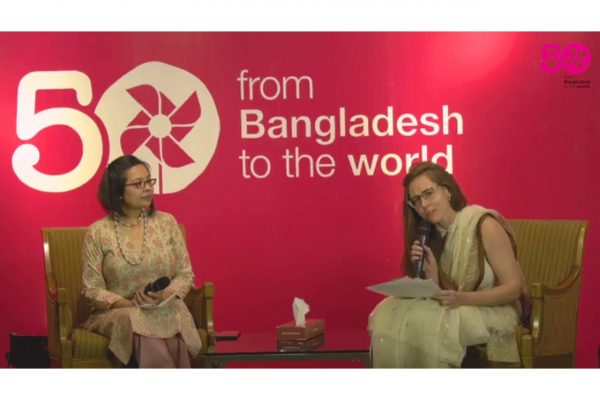
He said we were a basketcase.
A man
In a big house
In a faraway land
Another told us not to speak our own language.
A man
In a big house
In a faraway land
A third said we could not save our own children from dying.
A man
In a big house
In a faraway land
There were many who did not believe in us.
But we believed.
When we say we understand struggle
It’s because we have struggled
Born from blood and cyclones,
Founded on freedom,
Crisscrossed with rivers – of fish and tears
Let no one tell …
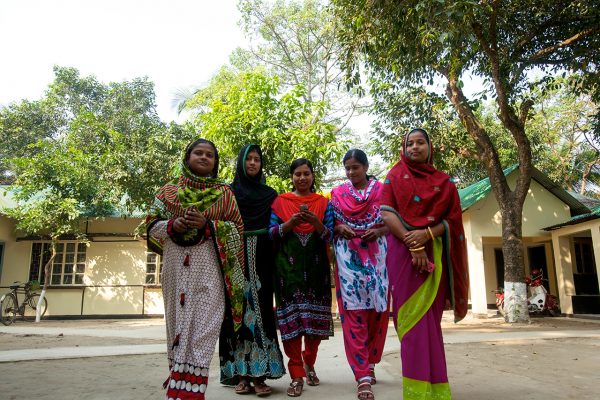
Selina Akhter*, the eldest of five sisters, is an aspiring entrepreneur from Habiganj in Sylhet, northern Bangladesh. Her husband is a migrant worker abroad. She is confident and determined to provide for her family, but does not use mobile money as a vehicle for saving, for the same reasons as many other women – primarily, poor digital literacy and socio-cultural constraints.
Selina invests in livestock and poultry. She works hard to save and make a living.
“I dream of my own farm. My husband loves the idea. I have to keep it a secret from my in-laws, though. …

Congratulations, dear graduates. Each of you are part of an exceptional cohort – the first graduating batch of BRAC University since COVID-19. It is a momentous and special occasion for you and us alike.
I congratulate you not only for completing your undergraduate programme, but also for having persevered through the uncertainty of the past two years. Some of you have survived unimaginable losses. I extend my deepest sympathies. I, and everyone here today, is immensely proud that you are all here – and ready to take the next step into your futures.
I urge you to consider this …
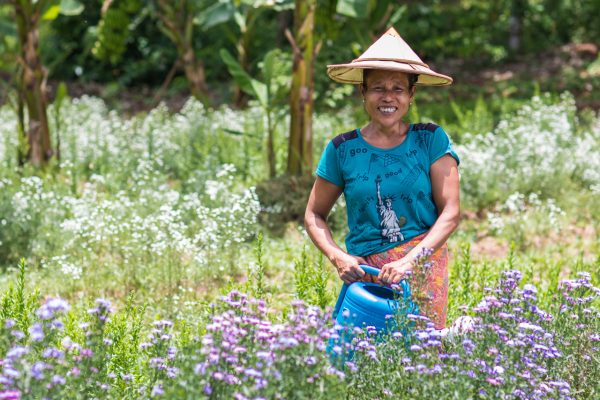
2021 can be summed up in three words for BRAC International Microfinance – determination, resilience, and growth.
We have directly witnessed the acute impact of COVID-19 on communities living in poverty. Yet, in the same year, we also witnessed the extraordinary creativity, resolve, and resilience of our clients and communities to face the economic brunt of the pandemic and rebuild their lives.
Operationally, it was a challenging year for us. We had to navigate through situations that were often beyond our control. Yet, we launched new products, made bold decisions, and unlocked new achievements in 2021.
We stayed close to …
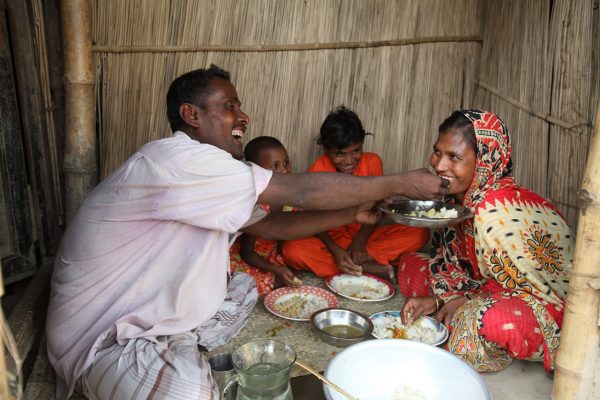
Physical and mental health are both crucial to live a full life and contribute to the world around us. The definition of health, according to the World Health Organization (WHO), is ‘a state of complete physical, mental and social wellbeing’, and not merely as the absence of disease. The definition of mental health takes the definition of health to the next level: mental health is ‘a state of wellbeing in which the individual realises his or her own abilities, can cope with the normal stresses of life, can work productively and fruitfully, and is able to make a …
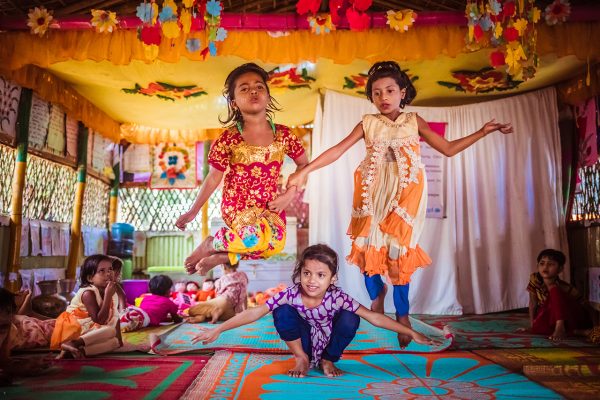
Many factors influence children’s development and mental health – the environments they are raised in (ie, home, school), the relationships they build and the experiences they have. Evidence suggests that play-based learning in these early years is a powerful approach to promoting healthy development and improving children’s potential for learning later in life. Happiness and wellbeing grow simultaneously with discovery, competence and mastery. Children learn naturally when they are provided with safe, stimulating spaces, where they are listened to, and valued as an individual entity.
Globally, early childhood development is a priority under Sustainable Development Goal 4.2, which aims to …
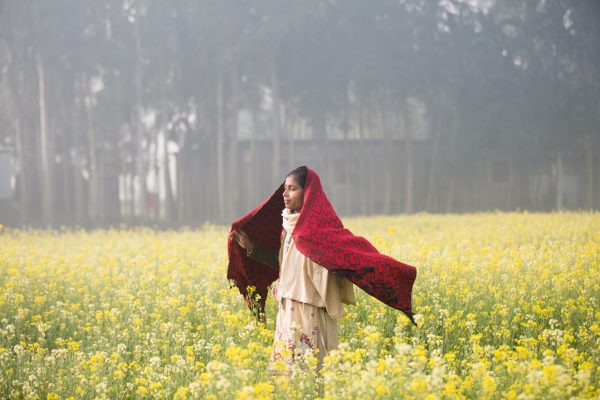
In order to achieve Goal 16 of the Sustainable Development Goal (SDGs), countries must ‘provide access to justice for all and build effective, accountable and inclusive institutions at all levels’.
More specifically, under SDG Target 16.3, countries must promote the rule of law at the national and international levels and ensure equal access to justice for all. One of the ways progress towards achieving this target is officially monitored is by measuring the proportion of victims of violence who reported their victimisation to competent authorities in the past 12 months (SDG Indicator 16.3.1).
In the past 40 years, …
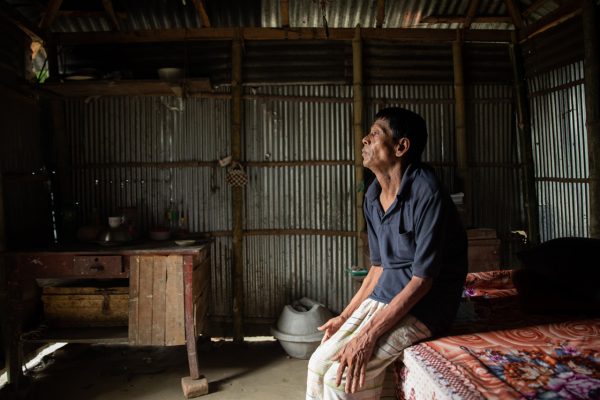
Rahima and Kashem started their business at the age of 50. The couple sells clothes in a van on a busy street in Kishoreganj, Bangladesh. These were the same streets where they would beg before.
Both Rahima and Kashem have visual impairments. They spent the majority of their lives in poverty. Their families could barely support them, and they were never able to find work they could do.
When the couple started their business, they thought about what could make it easy for them. The wholesale market of clothes is far from their home, so they bought a van …

The decreasing number of women workers can be attributed to a number of factors, but key among those are a lack of decent working conditions and a lack of adequate skill development. The industry has not ensured equal opportunities in supervisory roles, which has led to men holding the majority of supervisory positions.
95% of line supervisor jobs are held by men. Women are often not able to enter mid-management positions in the factories as employers often have a preconceived notion that women are incapable of handling these roles.
Read more: The garment industry needs more women leaders
Women …
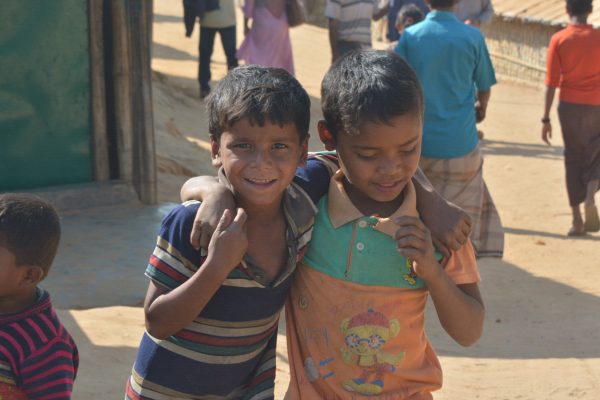
Toilets. Do you have one?
If you have access to a well-equipped toilet in your home, office, or neighbourhood, you are luckier than half of the world. Almost 4.5 billion people still do not have access to a safe toilet. This has a price – poor sanitation costs the world USD 260 billion every year.
Bangladesh is a role model for safe sanitation. There are toilets everywhere, of every possible kind. Open defecation has reduced from 34% to almost zero over the past two decades, and having a toilet has become a status symbol in remote areas. Here are five …
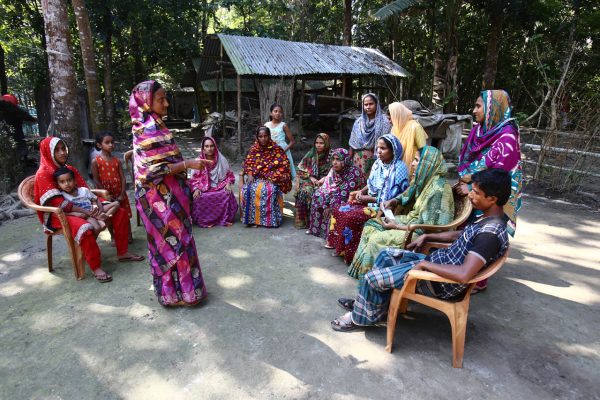
People living in extreme poverty also lack access to food, education, and the resources and skills needed to develop a sustainable livelihood like financial services and access to available social services. Children born in these families get trapped in this cycle, with limited access to proper nutrition, sanitation, and education. Girls face even greater challenges such as child marriage and its subsequent health implications.
BRAC’s evidence-based, multifaceted Graduation approach provides a pathway out of extreme poverty that benefits participants’ entire households, including their children, by addressing their multidimensional needs. It connects families to essential social protection programmes and enables …
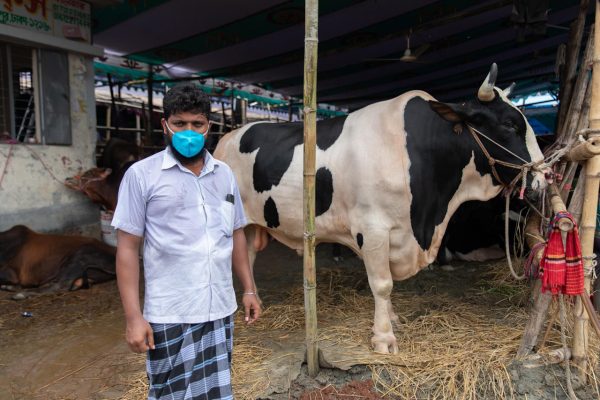
The COVID-19 pandemic took a dangerous turn in Bangladesh in July 2021, and the country witnessed over 12,000 infected cases and 200 deaths daily. As Eid-ul-Azha approached, the key question was: how could we ensure the safety of millions of people in a densely-populated country like Bangladesh, where mimicking western policies such as social distancing may not work?
Eid-ul-Azha in Bangladesh is celebrated with a unique tradition of organising seasonal cattle markets. Millions of buyers and sellers from across the country gather in these markets to buy or sell sacrificial livestock, especially cattle.
These markets are packed – …

